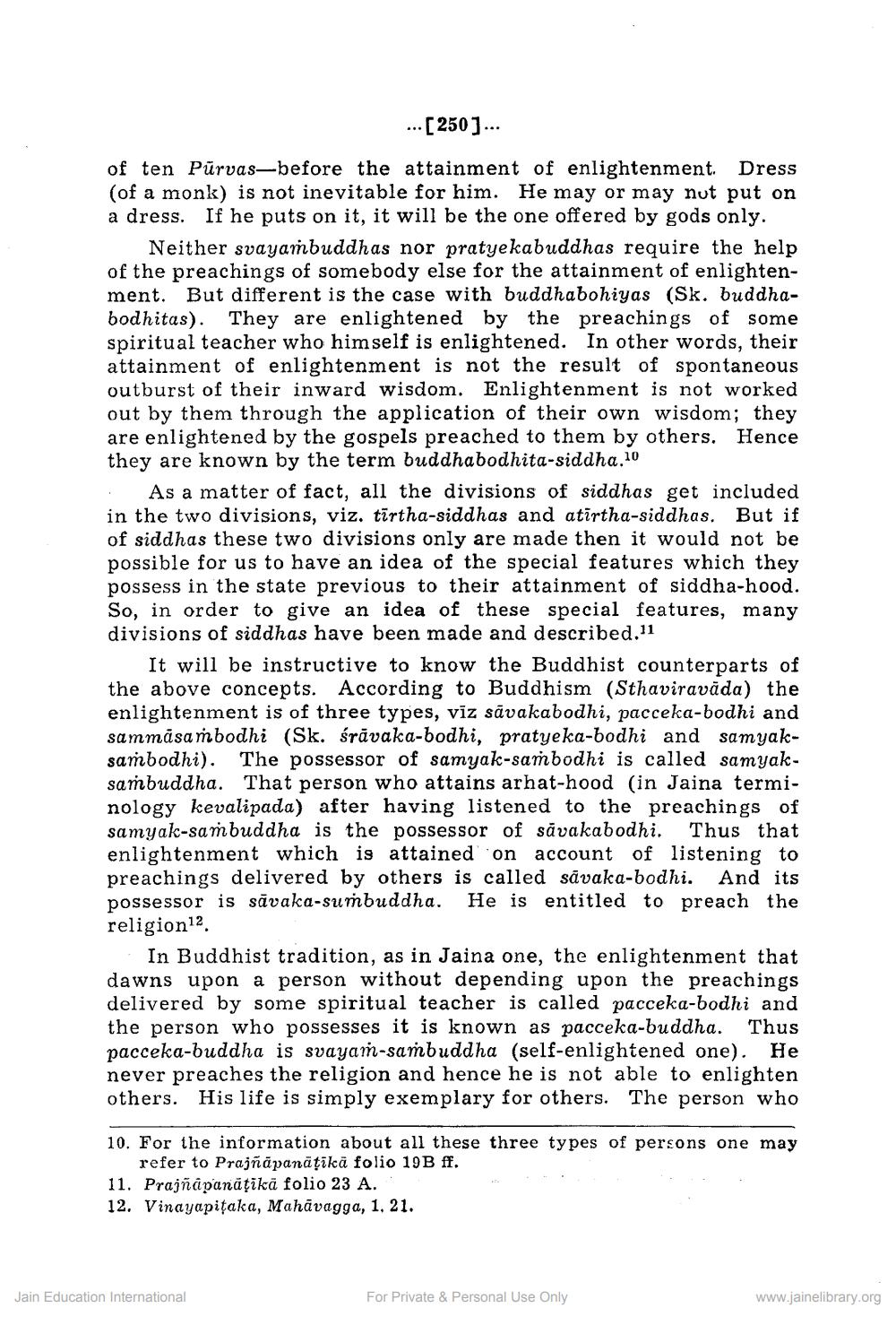________________
... [250]...
of ten Purvas-before the attainment of enlightenment. Dress (of a monk) is not inevitable for him. He may or may not put on a dress. If he puts on it, it will be the one offered by gods only.
Neither svayambuddhas nor pratyekabuddhas require the help of the preachings of somebody else for the attainment of enlightenment. But different is the case with buddhabohiyas (Sk. buddhabodhitas). They are enlightened by the preachings of some spiritual teacher who himself is enlightened. In other words, their attainment of enlightenment is not the result of spontaneous outburst of their inward wisdom. Enlightenment is not worked out by them through the application of their own wisdom; they are enlightened by the gospels preached to them by others. Hence they are known by the term buddhabodhita-siddha.10
As a matter of fact, all the divisions of siddhas get included in the two divisions, viz. tirtha-siddhas and atirtha-siddhas. But if of siddhas these two divisions only are made then it would not be possible for us to have an idea of the special features which they possess in the state previous to their attainment of siddha-hood. So, in order to give an idea of these special features, many divisions of siddhas have been made and described.11
It will be instructive to know the Buddhist counterparts of the above concepts. According to Buddhism (Sthaviravāda) the enlightenment is of three types, viz sāvakabodhi, pacceka-bodhi and sammasambodhi (Sk. śrāvaka-bodhi, pratyeka-bodhi and samyaksambodhi). The possessor of samyak-sambodhi is called samyaksambuddha. That person who attains arhat-hood (in Jaina terminology kevalipada) after having listened to the preachings of samyak-sambuddha is the possessor of sävakabodhi. Thus that enlightenment which is attained on account of listening to preachings delivered by others is called sävaka-bodhi. And its possessor is sāvaka-sumbuddha. He is entitled to preach the religion12.
In Buddhist tradition, as in Jaina one, the enlightenment that dawns upon a person without depending upon the preachings delivered by some spiritual teacher is called pacceka-bodhi and the person who possesses it is known as pacceka-buddha. Thus pacceka-buddha is svayam-sambuddha (self-enlightened one). He never preaches the religion and hence he is not able to enlighten others. His life is simply exemplary for others. The person who
10. For the information about all these three types of persons one may
refer to Prajñāpanātikā folio 19 B ff. 11. Prajñāpanātikā folio 23 A. 12. Vinayapitaka, Mahāvagga, 1.21.
Jain Education International
For Private & Personal Use Only
www.jainelibrary.org




